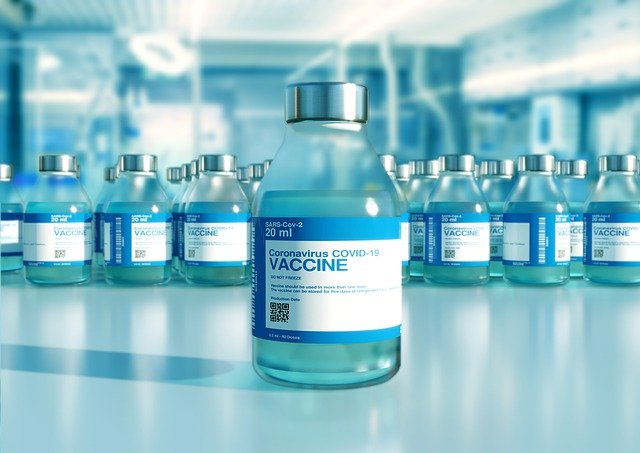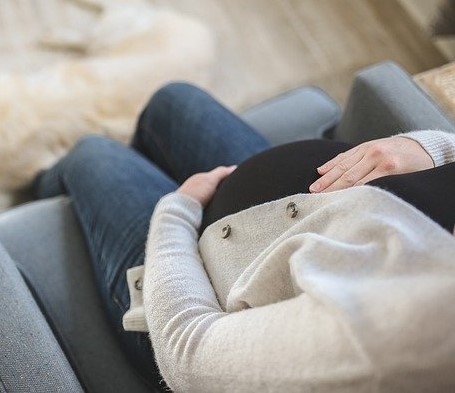Pregnancy and COVID-19 Vaccines
Pregnancy and COVID-19 Vaccines
March 5, 2021
While the COVID-19 vaccination program is extending globally, we have many questions regarding the vaccines’ safety, durability, and efficacy against variants. One of the important safety questions is the effects of COVID-19 vaccines on pregnant women as clinical trials for COVID-19 vaccines were conducted without their participation. Are the vaccines safe and effective for pregnant women? What about the effects of vaccination on the fetus? Such questions should obviously be balanced with the risk of disease severity for infected pregnant women and fetuses.
 Vaccine Safety
Vaccine Safety
Are vaccines safe and effective for pregnant or lactating women, fetuses and breastfeeding infants? The issue is somewhat complicated due to the lack of data from vaccine trials. However, both the Moderna and Pfizer vaccines use mRNA encoding the viral spike protein, encased in a lipid nanoparticle. Since this approach does not use virus, their vaccines could be relatively safe. This is an opinion voiced by a wide variety of medical and health providers. In addition, several references offer confidence for vaccine safety in pregnant women (1, 2). Similar considerations are likely to hold true for the Oxford-Astra Zeneca and Johnson and Johnson vaccines, which use a non-replicating adenoviral vector to deliver the spike protein gene to the immune cells.
Non-clinical studies have not raised much concern on the safety. Overall the decision to vaccinate or not a pregnant woman should be decided by the medical doctor, taking in account the risk of COVID-19 for a pregnant woman. Indeed, surveillance data suggest that pregnant women may be at higher risk for severe illness and death caused by COVID-19 as compared with non-pregnant women. The World Health Organization (WHO) also recommends that those pregnant women at high risk of exposure to SARS-CoV-2 (e.g. health workers) or who have underlying medical conditions, such as heart or lung disease, should be vaccinated upon consultation with their health care provider.
Will vaccination accrue protection to the fetus? This appears to be unlikely, since limited data indicate that transfer of anti-SARS-CoV-2 antibodies from mother to fetus seems relatively poor(3).
Non-clinical studies have not raised much concern on the safety. Overall the decision to vaccinate or not a pregnant woman should be decided by the medical doctor, taking in account the risk of COVID-19 for a pregnant woman.
We evaluate existing information and consider both the threat of infection and benefit of vaccines, providing protection against COVID-19. Thus, the vaccination campaign could not differ between pregnant women and the general population. On the other hand, the outcomes of infection with SARS-CoV-2 do appear to be worse for pregnant women, as described above.
Overall, there is little risk in vaccination of pregnant women, and vaccination provides necessary protection from infection and disease severity. The benefits, then, appear to far outweigh the risks. It is highly encouraging for the vaccination of pregnant women.
COVID-19 Effects on Pregnant Women
We evaluate existing information and consider both the threat of infection and benefit of vaccines, providing protection against COVID-19. Thus, the vaccination campaign could not differ between pregnant women and the general population. On the other hand, the outcomes of infection with SARS-CoV-2 do appear to be worse for pregnant women, as described above. An early report from Sweden suggests that pregnant women are approximately six-fold more likely to require intensive care than age-matched non-pregnant women(4), but the numbers of participants were small. Large and more recent metanalyses(5, 6) showed that, although pregnant women with COVID-19 are more likely to require intensive care, they are paradoxically less likely to report fever and myalgia. Risk factors were similar to those in other cohorts; obesity, age and other comorbidities. All these studies support the hypothesis that the outcomes of disease can be severe to pregnant women.
There are also reports showing increases in premature births as well as in admissions to the neonatal unit(5). An instance of transplacental transmission of SARS-CoV-2 has been documented(7), but such events appear to be quite rare(2, 3). The precise reasons for rare mother-fetal transmission are not clear, but this may be due to a lack of expression of the ACE2 viral receptor and the entry cofactor protease TMPRSS2 in the placenta(3, 8). Transmission of virus to infants via breast milk appears unlikely(9, 10), inasmuch as replicating virus is not present and even viral RNA is rarely detectable, but their results were thus far obtained only from patients with mild cases of COVID-19. Furthermore, breast milk contained both IgA and IgG antibodies to SARS-CoV-2, and 62% of the samples have virus neutralizing activity(10), suggesting that breast feeding could provide a partial protection.
Conclusion
Overall, there is little risk in vaccination of pregnant women, and vaccination provides necessary protection from infection and disease severity. The benefits, then, appear to far outweigh the risks. It is highly encouraging for the vaccination of pregnant women.
- E. H. Adhikari, C. Y. Spong, COVID-19 Vaccination in Pregnant and Lactating Women. JAMA, (2021).
- S. A. Rasmussen, D. J. Jamieson, Pregnancy, Postpartum Care, and COVID-19 Vaccination in 2021. JAMA, (2021).
- A. G. Edlow et al., Assessment of Maternal and Neonatal SARS-CoV-2 Viral Load, Transplacental Antibody Transfer, and Placental Pathology in Pregnancies During the COVID-19 Pandemic. JAMA Network Open 3, e2030455-e2030455 (2020).
- J. Collin, E. Byström, A. Carnahan, M. Ahrne, Public Health Agency of Sweden’s Brief Report: Pregnant and postpartum women with severe acute respiratory syndrome coronavirus 2 infection in intensive care in Sweden. Acta Obstet Gynecol Scand 99, 819-822 (2020).
- J. Allotey et al., Clinical manifestations, risk factors, and maternal and perinatal outcomes of coronavirus disease 2019 in pregnancy: living systematic review and meta-analysis. BMJ 370, m3320 (2020).
- L. D. Zambrano et al., Update: Characteristics of Symptomatic Women of Reproductive Age with Laboratory-Confirmed SARS-CoV-2 Infection by Pregnancy Status – United States, January 22-October 3, 2020. MMWR Morb Mortal Wkly Rep 69, 1641-1647 (2020).
- A. J. Vivanti et al., Transplacental transmission of SARS-CoV-2 infection. Nat Commun 11, 3572 (2020).
- R. Pique-Regi et al., Does the human placenta express the canonical cell entry mediators for SARS-CoV-2? Elife 9, (2020).
- C. Chambers et al., Evaluation for SARS-CoV-2 in Breast Milk From 18 Infected Women. JAMA 324, 1347-1348 (2020).
- R. M. Pace et al., Characterization of SARS-CoV-2 RNA, Antibodies, and Neutralizing Capacity in Milk Produced by Women with COVID-19. mBio 12, e03192-03120 (2021).

